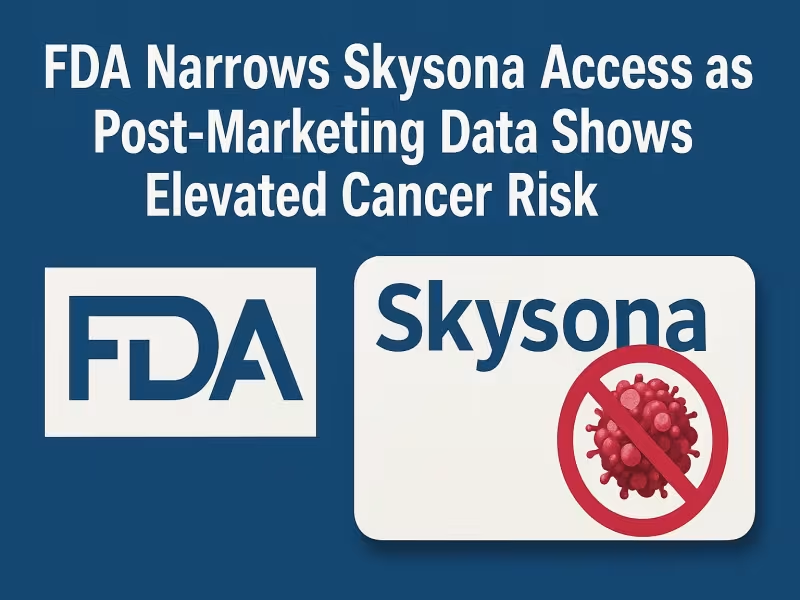
SHERIDAN, WYOMING – August 12, 2025 – The U.S. Food and Drug Administration (FDA) has significantly tightened prescribing criteria for bluebird bio’s Skysona, an autologous hematopoietic stem cell-based gene therapy for cerebral adrenoleukodystrophy (CALD). The treatment is now limited to patients with no other therapeutic options or available stem cell donors, following post-marketing findings of a substantially higher incidence of hematologic malignancies than previously reported.
Heightened Safety Concerns Drive Label Changes
Skysona, granted accelerated approval in 2022 for boys aged four to 17 years with active CALD, originally carried a boxed warning for hematologic malignancies but was accessible to all eligible patients. FDA data show that during clinical development, 3 of 67 patients developed myelodysplastic syndrome (MDS), an incidence rate of 4%. Since approval, an additional seven cases of blood cancer have been reported, raising the rate to 15%. These malignancies — including acute myeloid leukemia (AML) and recurrent MDS — have occurred between 14 months and 10 years after infusion. At least one patient has died from treatment-related complications.
FDA Notes Early-Onset Risks
In its safety communication, the agency underscored that, “Importantly, some patients developed malignancy before Skysona had time to potentially provide therapeutic benefit for their CALD.” This raises critical questions about risk-benefit assessment in the rare disease setting, where rapid disease progression must be weighed against long-term safety hazards.
Therapeutic Mechanism and Clinical Role
Skysona delivers functional copies of the ABCD1 gene into a patient’s own stem cells, aiming to halt the neurological decline caused by CALD. The therapy is designed for patients without access to allogeneic stem cell transplantation, which remains the current standard for halting disease progression when a matched donor is available.
Gene Therapy Market Faces Broader Headwinds
The FDA’s decision reflects a growing caution in the gene therapy sector, which has recently seen multiple regulatory setbacks. Notably:
- Sarepta’s Elevidys: Reports of patient deaths in Duchenne muscular dystrophy trials have triggered heightened scrutiny.
- Ultragenyx’s Sanfilippo Program: Received a Complete Response Letter citing manufacturing deficiencies.
- Vertex: Exited adeno-associated virus vector development earlier this year, signaling shifting corporate strategies.
These developments underscore the fragility of commercial and regulatory momentum in advanced therapies, particularly in rare pediatric diseases.
Implications for Hospitals and Providers
For specialized treatment centers, the narrowed label necessitates tighter patient selection protocols, expanded informed consent processes, and long-term malignancy surveillance. Providers may also need to increase reliance on multidisciplinary tumor boards and genetic counseling to guide decision-making.
Next Steps for Stakeholders
With bluebird bio now privately held following its February acquisition by Carlyle and SK Capital Partners, the commercial trajectory of Skysona remains uncertain. Hospitals offering CALD care must closely monitor evolving FDA guidance, while payers may revisit coverage criteria in light of the therapy’s constrained indication and increased risk profile.
Healthcare institutions can access the FDA’s updated safety communications here, which detail revised labelling and post-marketing monitoring recommendations.